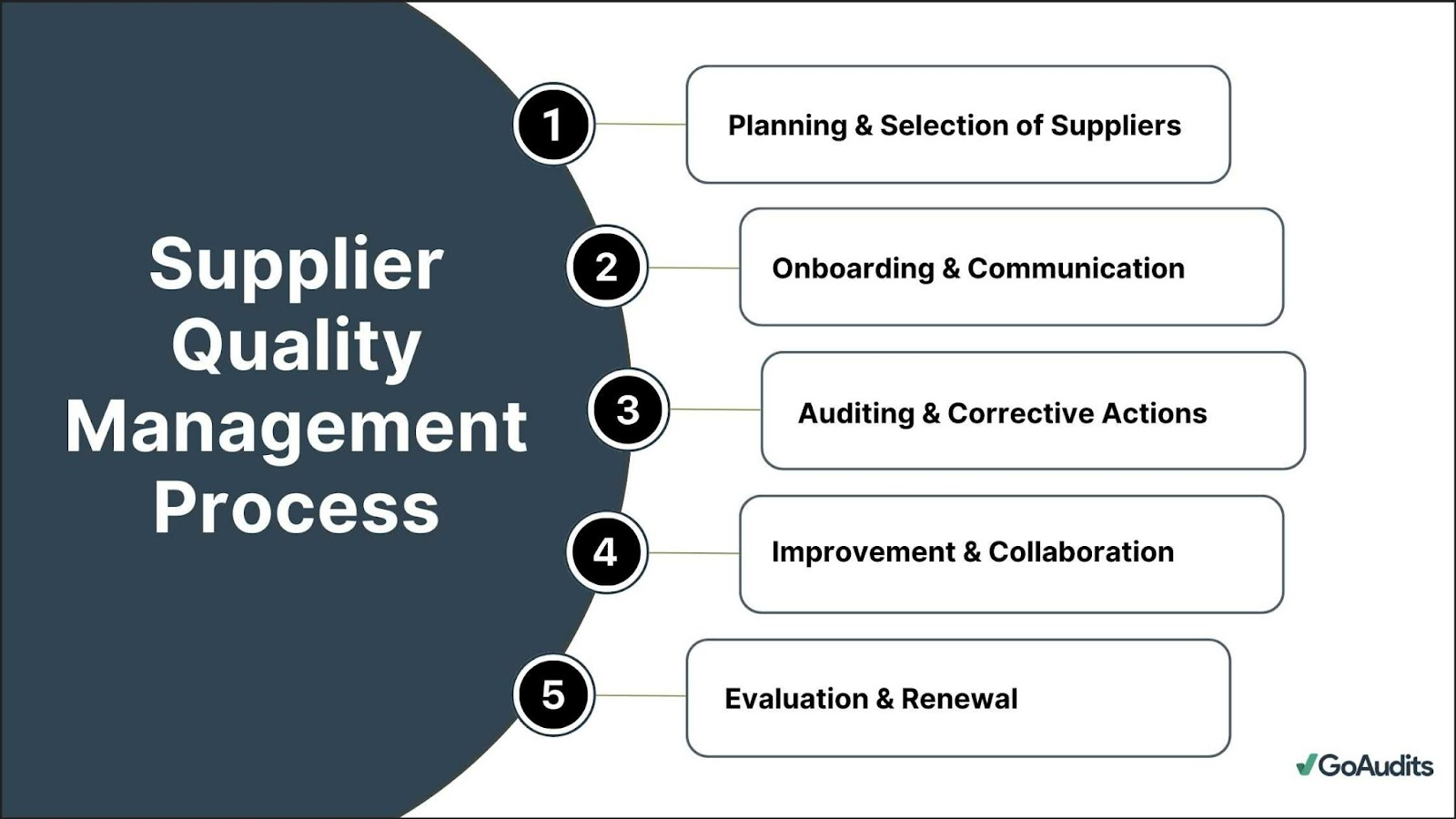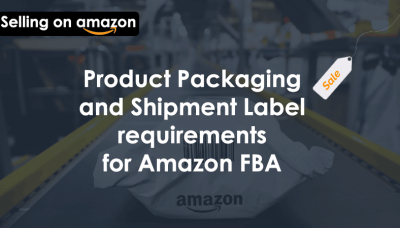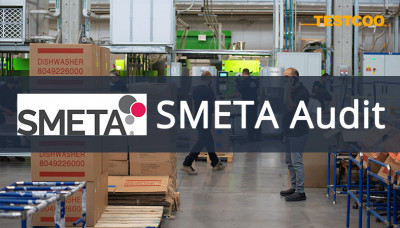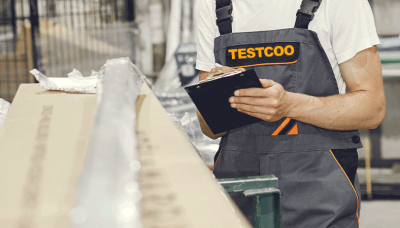Understanding the Significance of Quality Control in Start-ups

↵
Quality control is not just a buzzword, it's the lifeblood of any start-up. In the early stages of a business, every decision, every product, and every interaction can make or break the company's future. Here are some key reasons why quality control is of utmost importance:
1. Customer Satisfaction
Customers are the foundation of any business, and their satisfaction should be a top priority. High quality products and services meet or exceed customer expectations, leading to positive experiences. For example, if a start-up in the food industry ensures that its products are made with fresh ingredients, have consistent taste, and are packaged attractively, customers are more likely to be satisfied. Satisfied customers are not only likely to become repeat buyers but also act as brand ambassadors, spreading positive word of mouth. According to a study by American Express, 90% of Americans use customer service as a factor in deciding whether to do business with a company, and 33% would consider switching companies after just one instance of poor service.
2. Brand Reputation
In today's digital age, where information spreads rapidly, a start-up's brand reputation can be easily damaged by quality issues. A single negative review on social media or a consumer review site can reach a wide audience and deter potential customers. On the contrary, a reputation for high quality products and services can attract new customers and build trust in the brand. Take Apple, for example. Even as a start-up in the 1970s, it focused on product quality, which contributed to its strong brand reputation that endures to this day. A good brand reputation can also help a start-up charge premium prices, as customers are often willing to pay more for products they perceive as high quality.
3. Long-term Competitiveness
Quality control is essential for a start-up to remain competitive in the long run. By consistently delivering high quality products, a company can differentiate itself from competitors. This is especially important in crowded markets. For instance, in the smartphone market, start-ups need to ensure that their devices have excellent build quality, reliable performance, and up-to-date features to compete with established brands. Moreover, quality control can lead to cost savings in the long term. By reducing the number of defective products, a start-up can cut down on production costs, waste, and customer returns, making it more efficient and competitive.

Key Elements of Quality Control
1. Setting Clear Quality Standards
Clear quality standards are the foundation of effective quality control. start-ups should define quality in terms that are measurable, achievable, relevant, and time bound (SMART). For example, if a start-up is manufacturing smartphones, the quality standards could include a maximum number of pixel related defects per screen, a minimum battery life under specific usage conditions, and a maximum allowable deviation in the phone's dimensions.
When setting these standards, it's crucial to refer to industry recognized standards. For instance, in the electronics industry, standards set by the International Electrotechnical Commission (IEC) provide guidelines on electrical safety, electromagnetic compatibility, and environmental protection. In the food and beverage industry, the Hazard Analysis and Critical Control Points (HACCP) system helps in identifying and controlling potential food safety hazards. By aligning with such industry standards, start-ups can ensure that their products meet or exceed the minimum requirements expected in the market.
Customer expectations also play a significant role in setting quality standards. start-ups should conduct market research, gather customer feedback, and analyze competitor products to understand what customers truly want. If customers expect a certain level of water resistance in a smartwatch, the start-up should incorporate this requirement into its quality standards.
2. Supplier Quality Management
The quality of a start-up's products is often closely tied to the quality of the materials and components supplied by its vendors. Here are some key aspects of supplier quality management:
- Selecting Reliable Suppliers
When choosing suppliers, a start-up should not only consider the price but also the supplier's reputation, quality control processes, production capacity, and financial stability. For example, a clothing start-up looking for fabric suppliers should assess whether the supplier has a history of providing high quality fabrics with consistent color and texture, and whether they can meet the start-up's production volume requirements.
- Establishing an Evaluation System
A comprehensive supplier evaluation system should be in place. This can include onsite audits to assess the supplier's manufacturing facilities, quality control procedures, and employee training programs. Key performance indicators (KPIs) such as on time delivery rate, product defect rate, and responsiveness to quality issues can also be used to evaluate suppliers. For instance, if a start-up notices that a particular supplier has a high defect rate for a critical component, it can take appropriate actions, such as providing additional training or finding an alternative supplier.
- Regular Communication
Maintaining regular communication with suppliers is essential. This helps in clarifying quality requirements, addressing any emerging issues promptly, and fostering a collaborative relationship. For example, if a start-up plans to introduce a new product feature that requires a change in the supplied components, early communication with the supplier can ensure a smooth transition.

3. In-Process Quality Monitoring
Monitoring the quality of products during the production process is crucial for identifying and rectifying issues before they result in costly rework or defective end products.
- Setting Inspection Points
Inspection points should be strategically placed throughout the production line. For example, in a furniture manufacturing start-up, inspections can be carried out after the cutting of raw materials to check for any defects in the wood, after the assembly stage to ensure proper fitting of components, and before the final finishing process. These inspections can be carried out by trained quality control personnel or through the use of automated inspection equipment.
- Using Statistical Process Control (SPC)
SPC involves the use of statistical techniques to monitor and control a production process. By analyzing data collected from the production process, such as the dimensions of parts, the start-up can detect any variations that may lead to quality problems. For example, if the diameter of a metal component in a machinery start-up starts to deviate from the set standard, SPC can signal an issue, allowing the start-up to investigate and correct the root cause, such as a misaligned machine or worn out tool.
Read more about SPC here.
4. Final Product Inspection
The final product inspection is the last line of defense against sending defective products to the market.
The inspection should cover various aspects of the product:
- Appearance: This includes checking for scratches, dents, color consistency, and proper labeling. For example, in a cosmetics start-up, the packaging should be free of any smudges or misprints, and the product should have a uniform color and texture.
- Performance: The product should be tested to ensure that it functions as intended. For instance, a software based start-up should conduct rigorous testing to ensure that its application is free of bugs and performs all the advertised functions smoothly.
- Safety: In products where safety is a concern, such as electrical appliances or children's products, strict safety checks must be carried out. This can involve testing for electrical insulation, flammability, and the presence of harmful substances. For example, a start-up manufacturing baby strollers should ensure that the stroller has proper braking mechanisms, stable construction, and no sharp edges.
Common Quality Control Challenges for Start-ups and Solutions
1. Limited Resources
One of the most significant challenges start-ups face is limited resources, both in terms of finances and human capital.
Financial Constraints: start-ups often operate on tight budgets, which can limit their ability to invest in high quality production equipment, advanced testing technologies, or hire experienced quality control professionals. For example, a small scale clothing start-up may not be able to afford state of the art fabric testing machines to ensure the quality of their raw materials. This can lead to issues such as fabric shrinkage or color fading in the final products.
Human Capital Shortages: With a small team, start-up employees often have to wear multiple hats. This means that there may not be dedicated quality control staff, and employees may lack the time and expertise to focus on quality control tasks. In a software start-up, developers may be primarily focused on coding and meeting project deadlines, leaving little time to conduct thorough quality assurance testing.
Solutions:
Cost-effective Quality Tools: There are many cost-effective quality control tools available. For example, open source software can be used for statistical process control in manufacturing start-ups. These tools can help in analyzing production data and identifying quality issues without the high cost of proprietary software.
Outsourcing: Consider outsourcing certain quality control functions, such as product inspections or laboratory testing. This can be more cost-effective than hiring full-time in-house staff. For instance, a start-up in the food industry can outsource its microbiological testing to a specialized laboratory.
Employee Cross training: Cross train employees to handle basic quality control tasks. In a small electronics start-up, assembly line workers can be trained to perform simple quality checks during the production process, ensuring that defects are caught early.
Know more benefits to cross-training employees:8 Benefits To Cross-Training Employees
2. Lack of Experience
Many start-up founders and employees may lack prior experience in quality control. This lack of experience can lead to misunderstandings about quality standards, ineffective quality control processes, and an inability to identify and solve quality issues promptly.
For example, a start-up in the furniture industry may not be familiar with the best practices for ensuring the stability and durability of their products. They may not know how to conduct proper stress tests on furniture joints, resulting in products that are prone to breaking.
Solutions:
Learning from Others: start-ups can learn from the experiences of more established companies in their industry. They can study case studies, attend industry conferences, and network with quality control professionals. For example, a new tech start-up can learn from the quality control processes of industry giants like Apple or Google by reading about their quality initiatives and strategies.
Training and Development: Invest in quality control training for employees. There are many online courses, workshops, and seminars available on topics such as ISO standards, Six Sigma, and statistical process control. A start-up can send its employees to these training programs to enhance their quality control knowledge and skills.
3. Scalability Issues
As a start-up grows and its business expands, maintaining consistent quality can become a challenge. A sudden increase in order volume may put pressure on the production process, leading to shortcuts in quality control.
For example, a start-up that manufactures handmade jewelry experiences a surge in orders during the holiday season. To meet the demand, they may rush the production process, resulting in jewelry with uneven finishes or loose gemstones.
Solutions:
Proactive Planning: Anticipate growth and plan quality control strategies in advance. This includes setting up scalable quality control processes and systems. For example, a start-up can invest in quality management software that can handle increasing volumes of quality data as the business grows.
Automation: Implement automation in quality control processes where possible. Automated inspection equipment can quickly and accurately check products for defects, even at high production volumes. In a start-up that manufactures consumer electronics, automated optical inspection systems can be used to detect soldering defects on printed circuit boards.
Supply Chain Management: Strengthen relationships with suppliers to ensure a consistent supply of high quality raw materials, even during periods of growth. A start-up in the beverage industry can work closely with its suppliers to ensure a stable supply of high quality ingredients as it expands its production.
How a Professional Inspection Company Can Help
1. Our Services at Testcoo
As a professional inspection company, Testcoo offers a comprehensive range of services tailored to meet the quality control needs of start-ups.
Product Inspection: We conduct thorough inspections for a wide variety of products, including textiles, electronics, toys, and more. Our inspection process covers different stages of production. For example, during the production initial inspection (IPC/IPI), we check the raw materials, components, and the production setup. This helps in identifying any potential issues at the early stage of production, such as the use of sub standard raw materials in a clothing start-up's fabric. During the production mid inspection, we monitor the production process to ensure that the manufacturing is in line with the quality standards. And in the production final inspection, we conduct a detailed examination of the finished products to make sure they meet all the quality requirements.
Supplier Audits: Our supplier audit services are designed to help start-ups assess the reliability and quality of their suppliers. We are also the first third-party in China to provide VR factory inspections.We perform onsite inspections of suppliers' facilities, evaluate their production processes, quality control systems, and compliance with relevant regulations. For instance, when a start-up in the electronics industry is looking for a supplier of circuit boards, we can audit the supplier to determine if they have the necessary equipment, skilled workforce, and quality management processes to produce high quality circuit boards consistently. Our audits also cover aspects such as social responsibility and environmental management in the supplier's operations.
Pre-shipment Inspection: This is a crucial service that ensures that the products are in perfect condition before they are shipped to the customers. We check the product quality, packaging, and labeling to meet the international standards and the specific requirements of the start-up's target market. For example, if a start-up is exporting food products, we make sure that the packaging is secure, the labels contain all the necessary information such as ingredients, nutritional facts, and expiration dates, and the products themselves are free from any contaminants or defects.
↵
2. Benefits of Partnering with Us
Partnering with us can bring numerous benefits to start-ups:
Professional Knowledge: Our team consists of highly trained and experienced professionals who are well versed in the latest quality control standards and techniques across various industries. We stay updated with the ever changing regulations and market requirements. For example, our experts can provide valuable insights on the new safety standards for children's toys in different countries, helping start-ups in the toy industry to ensure their products are compliant.
Time and Cost Savings: By outsourcing quality control tasks to us, start-ups can save significant amounts of time and resources. Instead of spending time and money on hiring and training in house quality control staff, setting up expensive testing facilities, start-ups can rely on our established infrastructure and expertise. For instance, a small scale start-up in the consumer goods industry can avoid the high cost of purchasing and maintaining specialized testing equipment for product durability testing. We can perform these tests efficiently and at a lower cost, allowing the start-up to focus on its core business activities.
Improved Product Quality: Our rigorous inspection and auditing processes help start-ups identify and rectify quality issues promptly. This leads to a higher quality end product, reducing the number of defective items, returns, and customer complaints. For example, through our pre-shipment inspections, we can catch any packaging defects that could lead to product damage during transportation, ensuring that the customers receive products in pristine condition. This, in turn, helps in building a positive brand image and customer loyalty for the start-up.
Free Sample Report Performance Quality Control
Download a sample report to keep control of your supply chain!
Featured Articles
 AQL Table | How to Read It
AQL Table | How to Read It TOP 10 Common Defects in Garments Quality Inspection
TOP 10 Common Defects in Garments Quality Inspection Product Packaging and Shipment Label requirements for Amazon FBA
Product Packaging and Shipment Label requirements for Amazon FBA What Is ASTM-F2413-18? Protective Footwear Standard
What Is ASTM-F2413-18? Protective Footwear Standard How to Conduct Third-Party Quality Control Inspections for Electric Scooters
How to Conduct Third-Party Quality Control Inspections for Electric Scooters SMETA Audit-What is SMETA Audit?
SMETA Audit-What is SMETA Audit? TESTCOO Supplier Verification/Certification Service SLCP, Higg FEM, GRS, GOTS
TESTCOO Supplier Verification/Certification Service SLCP, Higg FEM, GRS, GOTS Quality Control Inspection Company in China
Quality Control Inspection Company in China What is Quality Inspection? A Complete Guide
What is Quality Inspection? A Complete Guide Guidelines for Product Inspection in India
Guidelines for Product Inspection in India
Category
- Production Inspection Service
- Factory Audit
- Softline Inspection
- Hardline Inspection
- Electrics Inspection
- Certification
- Checklist
- Manufacturers
- Quality Assurance Basics
- Products Recall
- AQL
- Guidence and Standard
- News
- Supplier Management
- Amazon
- Protective Equipment
- e-commerce quality control
- Indian Manufacturing
- Soft Goods Quality Control
- Supply Chain Management
- Supply Chain Resilience
- E-Commerce Quality Control
- ISO 2859
- Supply Chain Optimization
- Garment Industry
- Higg Index




